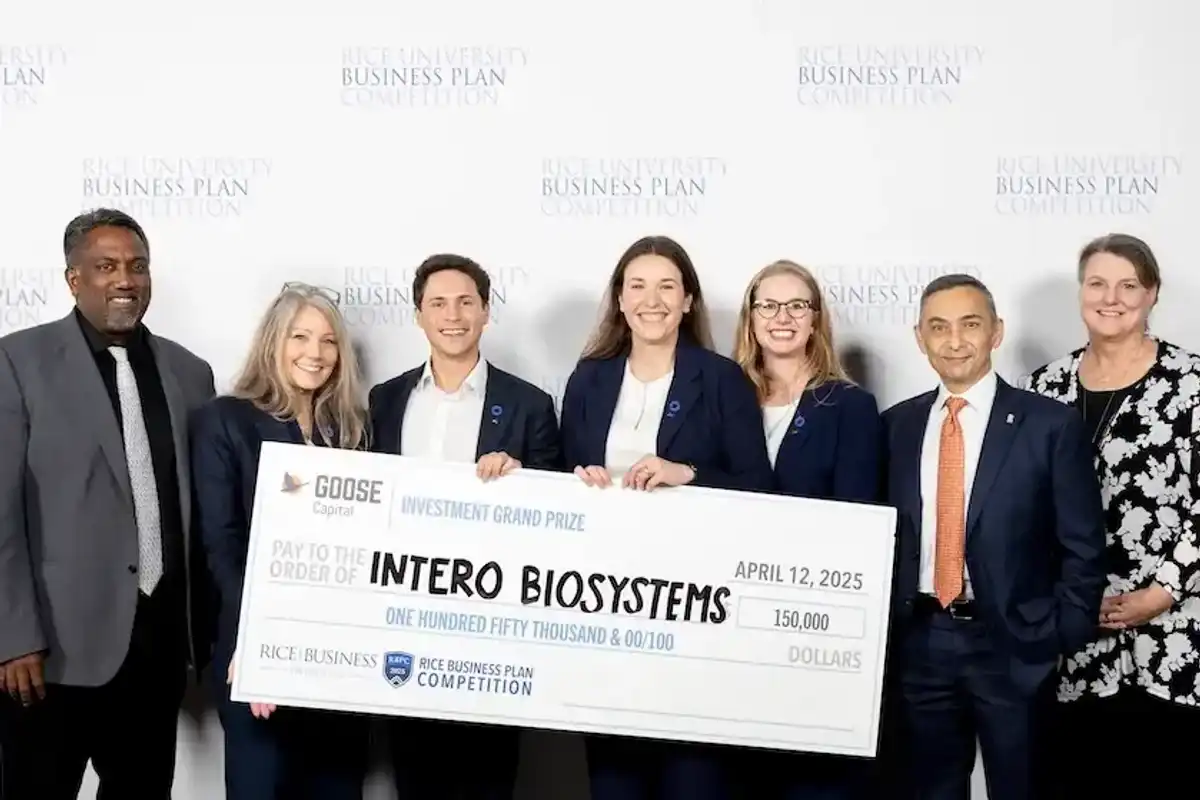Editor's note: February may be short, but its event calendar isn’t. From recurring monthly favorites to the return of annual celebrations and summits, here's what not to miss and how to register. Please note: this article may be updated to include additional event listings.
Feb. 2 — Entrepreneurship Roundtable with OPEN
Join founders, builders and innovators as they explore what it takes to create, scale and sustain meaningful ventures. This event, hosted by Open Houston, will be moderated by Faisal Bhutto, president and CEO of Houston-based end-to-end IT and cybersecurity company Alykas.
This event is Monday, Feb. 2, from 11 a.m.-1 p.m. at the Ion. Register here.
Feb. 3 — Tech+Tequila Talk: Tax Equity: Aligning Incentives for Founders, Investors & Philanthropy
Hear from guest speaker Cesar de la Cerda, founder and CIO of EnvisionVest, at the latest installment of Tech and Tequila Talk. The event will focus on using the tax code as a powerful fundraising tool.
This event takes place Tuesday, Feb. 3, from 5-7 p.m. at the Ion. Register here.
Feb. 5 — Ion Block Party Mardi Gras
Let the good times roll while networking with potential collaborators, mentors and investors at the Ion. Food and drink will be available, and the Ion will provide drink tickets for one free drink at Second Draught upon check-in.
This event is Thursday, Feb. 5, from 4-7 p.m. at the Ion. Register here.
Feb. 10 — Mercury Fund Day at the Ion
The Ion and Houston's Mercury Fund will host this special event, previously known as Software Day. The event will feature a panel that dives into how Mercury is pushing the boundaries of what’s possible with agentic AI and blockchain. A select group of early-stage software startups will also participate in office hours before the panel. Afterwards, all attendees can network during happy hour at Second Draught.
This event is Tuesday, Feb. 10, from 3:30-7:30 p.m. Register here.
Feb. 11-12 – In-Space Physical AI Workshop
Rice Nexus is bringing together industry leaders, government agencies and academia to explore the cutting edge of AI in space exploration. Matt Ondler, president of Aegis Aerospace, will present the keynote address. Other industry leaders from NASA Johnson Space Center, Intuitive Machines, Microsoft and Rice University and other organizations will participate. The event will close with the Inaugural Space Galette Reception hosted by the Consulate General of France in Houston and the Rice Space Institute.
This event begins Wednesday, Feb. 11, at the Ion. Register here.
Feb. 12 — State of the City
Houston First Corporation and the Greater Houston Partnership will host Mayor John Whitmire’s State of the City luncheon. Whitmire will share an update on his administration’s progress since taking office and highlight his top priorities that will continue to elevate Houston and its economy.
This event is Thursday, Feb. 12, from 11 a.m.-1:30 p.m. at the Hilton Americas-Houston. Register here.
Feb. 12 — Positioning Houston as the Brain Capital of the World
David Gow, CEO of the Center for Houston's Future, will present "Positioning Houston as the Brain Capital of the World" at the University of Houston Honors College Leadership Forum. Gow will share how Project Metis aims to establish Houston as a global hub for brain health research, innovation and economic development.
This event is Thursday, Feb. 12, from 7:30-9:30 a.m. at The Junior League of Houston. Register here.
Feb. 13 — From Research to Enterprise: Immigration & Innovation
Innov8 Hub will host an in-person seminar as part of its Startup Resources Series, focused on the intersection of immigration law, entrepreneurship and technology commercialization. The session will feature guest speakers Mario Cantu, Shilpa Ghurye and Vikesh Patel of KM&D PLLC, who will share insights for founders and innovators navigating legal pathways while building and scaling technology-driven ventures.
The event is Friday, Feb. 13, from 1-2 p.m. at the Innovation Center at UH Technology Bridge, Building 4. Register here.
Feb. 18-20 — TMC AI Summit
UTHealth Houston and Texas Children’s Hospital are bringing back the TMC AI Summit for its third year. This event is focused on translating advanced AI innovations into practical, real-world solutions for the biomedical and healthcare industries. It will be broken up into three tracks and will feature poster and oral presentations, workshops and tutorials, industry talks and student research showcases.
The event begins Wednesday, Feb. 18, at the Duncan Neurological Research Institute. Register here.
Feb. 26 — Transition on Tap
Greentown Labs’ signature networking event returns in February to foster conversations and connections within Houston's climate and energy transition ecosystem. Entrepreneurs, investors, students, philanthropists and more are invited to attend, meet colleagues, discuss solutions and engage with the growing community.
The event begins Monday, Feb. 26, from 5:30-7:30 p.m. at Greentown Labs. Register here.
Feb. 26 — NASA Tech Talk
Every fourth Thursday of the month, NASA experts, including longtime engineer Montgomery Goforth, present on technology development challenges NASA’s Johnson Space Center and the larger aerospace community are facing, and how they can be leveraged by Houston’s innovation community. Stick around after for drinks and networking at Second Draught.
This event is Thursday, Feb. 26, from 6-7 p.m. at the Ion. Register here.










